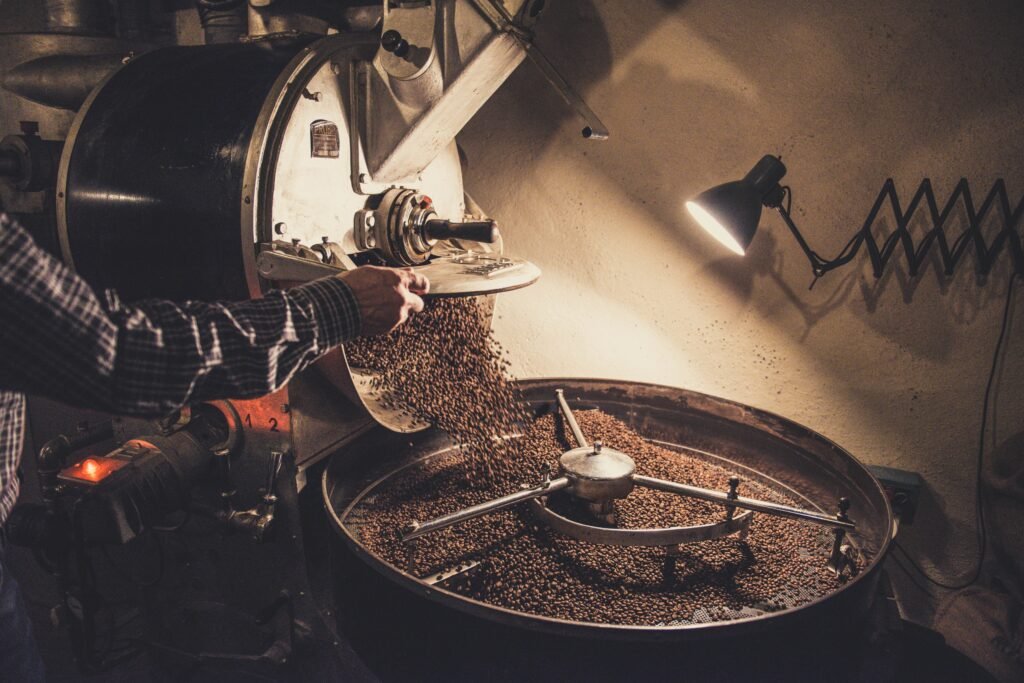You know that feeling when you wake up in a cozy hotel room, eagerly anticipating that first sip of freshly brewed coffee? Well, have you ever wondered about the cleanliness of the coffee maker? It’s a valid concern, and one that many travelers have. In this article, we’ll take a closer look at the cleanliness practices of hotel room coffee makers, ensuring you can enjoy your morning cup of joe with peace of mind.

The importance of regular cleaning
Cleaning is an essential aspect of maintaining a healthy and pleasant environment, and this holds true for hotels as well. Regular cleaning not only ensures the health and safety of guests but also contributes to their overall satisfaction. In this article, we will explore the significance of regular cleaning in hotels and discuss specific protocols, quality control measures, potential issues, benefits, customer expectations, common challenges, tips for hotel guests, industry regulations, and the importance of staff training.
Health risks
One of the primary reasons for regular cleaning is to mitigate health risks. In hotels, where a large number of individuals from diverse backgrounds stay, it is crucial to maintain cleanliness to prevent the spread of germs and diseases. Coffee makers, for instance, can harbor harmful bacteria if not cleaned regularly. Guests may be exposed to these bacteria when using the coffee maker, which could lead to health issues such as stomach infections or respiratory problems. Therefore, incorporating regular cleaning routines is imperative to safeguard the well-being of guests.
Customer satisfaction
In addition to health risks, regular cleaning also plays a significant role in ensuring customer satisfaction. Guests expect a clean and well-maintained environment when they stay in a hotel. They want to feel comfortable and confident that their chosen accommodation meets high cleanliness standards. A clean room, including a properly cleaned coffee maker, contributes to a positive guest experience and enhances their overall satisfaction. By prioritizing regular cleaning, hotels can improve customer satisfaction levels and subsequently attract repeat business and positive reviews.
Cleaning protocols in hotels
To maintain cleanliness in hotels, specific cleaning protocols need to be established and followed rigorously.
Cleaning frequency
Determining the frequency of cleaning activities is essential to maintain a consistently clean environment. For coffee makers in hotel rooms, it is advisable to clean them thoroughly after each guest’s stay, regardless of whether they have been used or not. This ensures that guests can always use clean and hygienic coffee makers during their stay. Additionally, regular deep cleaning of coffee makers should be scheduled to eliminate any potential buildup of residue or bacteria.
Cleaning methods
To effectively clean coffee makers and other areas within a hotel, proper cleaning methods must be implemented. It is essential to use suitable cleaning products that are safe for both the equipment and the guests. Specifically designed cleaning solutions should be used to remove mineral deposits, oils, and other contaminants that may accumulate within the coffee maker. Additionally, thorough cleaning of the surrounding areas, such as the countertop and other surfaces, should be conducted with the appropriate cleaning tools and techniques.
Quality control measures
To ensure consistent cleanliness throughout the hotel, quality control measures should be implemented.
Professional cleaning services
Many hotels rely on professional cleaning services to maintain high cleanliness standards. These services employ trained individuals who are well-versed in the proper cleaning protocols and techniques. By outsourcing cleaning to professionals, hotels can ensure that their coffee makers and other areas are thoroughly cleaned on a regular basis. Professional cleaning services often follow industry best practices and adhere to strict quality control measures, thus providing peace of mind to hotel staff and guests.
In-house cleaning procedures
Hotels also have the option to employ in-house cleaning staff to maintain cleanliness. This allows the hotel to have direct control over the cleaning process and the quality of work performed. In-house cleaning procedures should include comprehensive training programs to ensure that staff members are knowledgeable about cleaning techniques and usage of cleaning products. Regular inspections and audits should be conducted to monitor the effectiveness of the in-house cleaning procedures and to address any areas that may require improvement.
Potential issues with cleanliness
Despite the best efforts put into maintaining cleanliness, there are potential issues that hotels need to be aware of and address promptly.
Neglected coffee makers
Coffee makers are often overlooked when it comes to regular cleaning. Guests may leave behind residue from coffee grounds or spills, which can lead to buildup and the growth of bacteria if not cleaned properly. Neglected coffee makers not only compromise cleanliness but can also affect the taste and quality of the brewed coffee. To mitigate this issue, hotel staff should consistently inspect and clean the coffee makers between guest stays and ensure that proper cleaning procedures are followed.
Improper cleaning techniques
Another potential issue arises from the use of improper cleaning techniques. Cleaning products may be misused, leading to ineffective cleaning or, in some cases, damage to the coffee maker. It is crucial for hotel staff to receive comprehensive training on proper cleaning techniques specific to coffee makers. This includes using appropriate cleaning solutions, following manufacturer guidelines, and understanding the specific components of the coffee maker that require cleaning. By addressing the issue of improper cleaning techniques, hotels can maintain a higher level of cleanliness and reduce the risk of equipment damage.

Benefits of cleanliness
Maintaining cleanliness in hotels, including clean and well-maintained coffee makers, offers various benefits that enhance guest experience and promote a safer environment.
Improved taste and quality
Clean coffee makers contribute significantly to the taste and quality of brewed coffee. Regular cleaning removes residue, oils, and other contaminants that can accumulate over time, ensuring that guests can enjoy a fresh and flavorful cup of coffee. By prioritizing cleanliness, hotels provide an elevated coffee experience to guests, which can positively impact their overall perception of the establishment.
Reduced risk of contamination
A clean environment reduces the risk of contamination and the spread of diseases. Coffee makers, if not cleaned regularly, can become breeding grounds for bacteria. With proper cleaning protocols in place, hotels can minimize the risk of guests being exposed to harmful contaminants, ensuring a healthier and safer stay for everyone. By maintaining cleanliness, hotels demonstrate their commitment to both guest satisfaction and their well-being.
Customer expectations
Meeting and exceeding customer expectations is vital for any hotel. When it comes to cleanliness, the perceived cleanliness of a hotel significantly influences a guest’s perception and overall satisfaction.
Perceived cleanliness
Guests often make judgments about a hotel’s cleanliness based on their first impressions. The cleanliness of the room, including the coffee maker, plays a crucial role in forming these perceptions. Even if a hotel follows stringent cleaning protocols, a single neglected coffee maker can create an impression of poor cleanliness, detracting from an otherwise clean environment. Therefore, it is essential for hotels to prioritize every aspect of cleanliness, including the cleaning of coffee makers, to maintain a positive image and meet guest expectations.
Trust and loyalty
Consistently meeting high cleanliness standards builds trust and loyalty among guests. When customers feel confident in a hotel’s commitment to cleanliness, they are more likely to return for future stays and recommend the hotel to others. Word-of-mouth recommendations play a significant role in the hospitality industry, and by exceeding guest expectations through regular cleaning practices, hotels can cultivate a loyal customer base and ensure repeat business.

Common cleaning challenges
Hotels face certain common cleaning challenges when it comes to maintaining cleanliness throughout the property.
Hard-to-reach areas
Some areas within hotel rooms can be challenging to clean due to their accessibility. This can include areas behind furniture, corners, or places where dust and debris tend to accumulate. Coffee makers themselves can have intricate components that are difficult to reach and clean thoroughly. Hotels must have strategies and cleaning tools in place to tackle these hard-to-reach areas effectively. Regular inspections and scheduled deep cleaning can help address these challenges and ensure a consistently clean environment.
Residue buildup
Residue buildup is a prevalent challenge, especially in coffee makers that are frequently used. Coffee grounds, oils, and mineral deposits can accumulate over time, affecting the taste of the brewed coffee and potentially causing equipment malfunctions. Regular cleaning, both after each guest stay and through scheduled deep cleanings, is essential to prevent residue buildup. By addressing this challenge proactively, hotels can maintain the quality of their coffee makers and ensure a satisfying guest experience.
Tips for hotel guests
Hotel guests also play a role in maintaining cleanliness and ensuring a positive experience during their stay.
Inspecting coffee makers
As a guest, it is advisable to inspect the cleanliness of the coffee maker before use. Look for any visible residue, stains, or signs of neglect. If the coffee maker appears dirty or unsanitary, notify the hotel staff, and request a thorough cleaning or a replacement. By taking a proactive approach and communicating any concerns, guests can contribute to a cleaner and more enjoyable stay.
Using disposable filters
Using disposable filters can help improve the cleanliness of the coffee maker. These filters act as a barrier between the coffee grounds and the machine, preventing direct contact and reducing the likelihood of residue buildup. Additionally, disposable filters are easier to dispose of and replace, ensuring a cleaner and more hygienic brewing process. Guests can bring their own disposable filters or inquire with hotel staff if they are available.
Industry regulations and standards
The hospitality industry is subject to various regulations and standards, including those specific to cleanliness.
Health and safety requirements
Hotels must comply with health and safety regulations set by local health departments and governing bodies. These regulations often include specific guidelines regarding cleanliness standards and sanitation practices. Coffee makers fall under these guidelines, and it is crucial for hotels to adhere to them to ensure the safety and well-being of their guests. By following health and safety requirements, hotels can guarantee a clean and healthy environment for all.
Association guidelines
Many hospitality associations provide guidelines and resources to help hotels maintain cleanliness. These guidelines often encompass a wide range of areas, including room cleanliness and the proper cleaning of equipment such as coffee makers. Hotels that align themselves with industry associations can benefit from the knowledge and expertise shared. By incorporating industry best practices outlined in association guidelines, hotels can uphold high cleanliness standards and continuously improve their operations.
Hotel staff training
For hotels to effectively maintain cleanliness, staff members should undergo proper training and education.
Importance of proper training
Staff members responsible for cleaning should receive comprehensive training on cleaning protocols, techniques, and the use of cleaning products. This training ensures that they have the necessary knowledge to clean coffee makers and other areas effectively. It also familiarizes them with potential issues that may arise and equips them with the skills to address these challenges promptly. Ongoing training programs should be in place to keep staff members updated on the latest cleaning practices and industry standards.
Unsatisfactory practices
Hotels must be proactive in identifying and addressing unsatisfactory cleaning practices. Regular monitoring, inspections, and feedback sessions help identify any shortcomings in the cleaning process. If any issues are identified, additional training or corrective actions should be implemented to rectify the situation. By maintaining a culture of continuous improvement and addressing unsatisfactory practices, hotels can ensure that their cleanliness standards are consistently upheld.
In conclusion, regular cleaning is of utmost importance in hotels to ensure guest satisfaction and maintain a healthy and hygienic environment. By implementing proper cleaning protocols, quality control measures, and staff training, hotels can address potential issues, meet customer expectations, overcome common challenges, and adhere to industry regulations. By prioritizing cleanliness, hotels can create a positive and memorable experience for their guests, fostering trust, loyalty, and an outstanding reputation in the hospitality industry.







